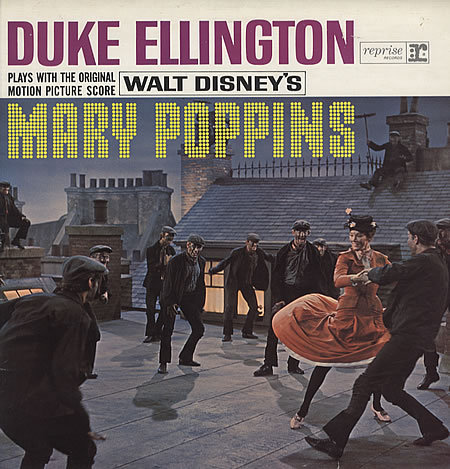Time may move on and fashions may change but for Duke Ellington the music started and ended in the 1940's and no matter how much hard bop and fusion there was by 1963, he was having none of it. In fact it's interesting to hear just how enlivening and inpiring Ellington's purely trad swing jazz still was by the 1960's, and that's partly because his stuff simply works, there's no trying hard to push boundaries or be challenging or interesting, all that's going on here is an unbreakable formula worked through by one its greatest applicators. The self-explanatory title of Will Big Bands Ever Come Back? (1963) is also something of a self-reflexive joke, because the answer is proven by the content. This is indeed big band swing played with such verve, such easy excitement, that the answer may well be "no" but who cares, it's still great stuff. A telling demonstration of Ellington's notoriously keen intelligence can be found in his superb reading of 'Rhapsody in Blue', the modern hidden in amongst the traditional, and his unchallengeable rebuff to those who would innovate for innovation's sake alone. Oddly though, the same year saw the release of Jazz Violin Session, a collaboration with Stephane Grappelli, which although you wouldn't call it groundbreaking innovation, did mark something of an acceptance of the need to adapt on Ellington's part. However, although Grappelli (and two other violinists) are all over the album, it's entirely Ellington's show. It's a supremely casual listen, suggesting that the players all had a great time playing together and there's a simple grace to it all which is unusual in these kind of trad interpretations.


Next up are three Ellington albums that are extremely curious, starting with 1964's Walt Disney's Mary Poppins. For some reason Ellington's record label persuaded him to record an album of interpretations of the songs from Mary Poppins and the album was rush released in 1964. Weirdly it really works and Ellington manipulates and deconstructs the songs in such a way as to render most of them scarcely recognisable, and to bring out the deeper melody behind the showtune surface. It's certainly a peculiar album but it's an inexplicably good one. The real difficulties of staying true to your style when nobody else is interested in it anymore really come to the surface on Ellington '65 and Ellington '66 (released in those years). These are deeply problematic records, on which Ellington (I assume was told rather than chose) records a selection of tunes, both trad and modern, the modern including stuff like 'Blowin' in the Wind' and 'I Want to Hold Your Hand'. And the modern pop and rock songs are absolutely disastrous, and also drag down the more traditional fare. It's a shame because it proved that both Ellington and his style were by this point hopelessly out of time, and it would be some years before we came to recognise the brilliance of his work without suggesting that he should move with the times, man.



On holiday for two weeks - massive dose of ELP on my return. Ulp.





No comments:
Post a Comment